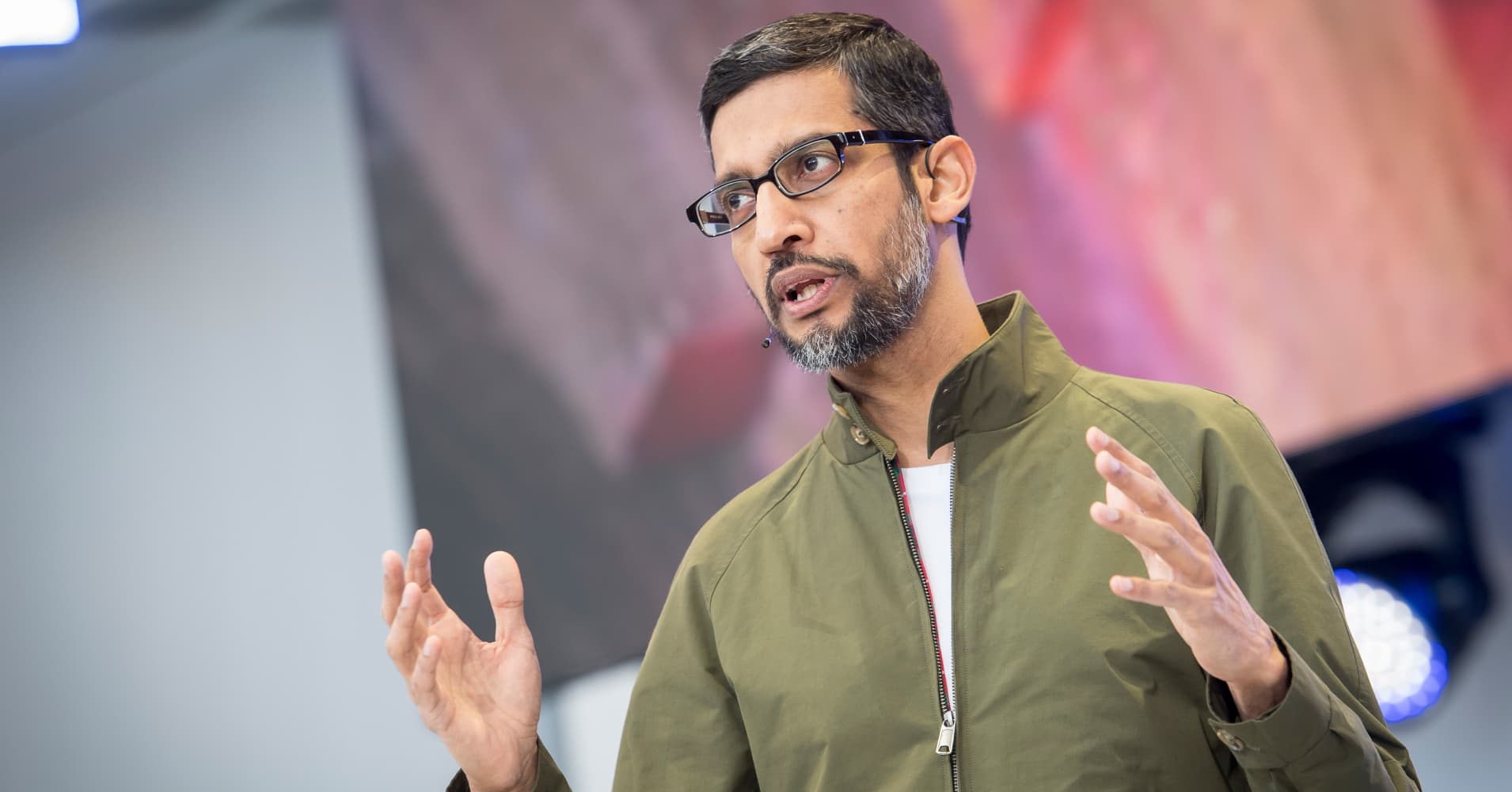
David Paul Morris | Bloomberg | Getty Images
Sundar Pichai, chief executive officer of Google Inc., speaks during the Google I/O Developers Conference in Mountain View, California, U.S., on Tuesday, May 8, 2018.
Last week, Google complied with the European Union’s $5 billion antitrust ruling by changing how it bundles its apps, and allowing phone manufacturers to make devices with modified — or “forked” — versions of Android alongside phones with Google’s version.
But as details leak out about how exactly these changes will be structured, it’s hard to imagine that they’ll make a dent in Google’s mobile dominance in the EU.
From the beginning, Google has denied stifling competition and is still appealing the EU’s decision, though these changes prevent it from having to pay additional fines in the meantime (it had 90 days to change its conduct before facing charges of up to 5 percent of Alphabet’s average daily worldwide revenue).
Still, Android, which Google gives away for free, has 74 percent market share in Europe, according to StatCounter. In July, EU antitrust regulators ruled that Google was using this dominance to push consumers towards its own search engine and other services —where it makes money — and weakening rival app makers in the process.
It ordered Google to unbundle its Chrome browser and search app from its Play Store, which consumers use to download other apps.
On Tuesday, Google announced its plan to satisfy regulators: It will now have separate licenses for Chrome and the search app. It will also have a separate license for its suite of other apps, including the Play store, Gmail, YouTube, Maps, and more. Phone makers can now license and pre-install that app suite without also licensing and pre-installing Chrome or Search.
However, Google says that including Search and Chrome with its other apps funded its development of Android, so to offset the lost revenue, it’s introducing a new licensing fee. A device maker that wants to install the Play Store (and the rest of the app suite) on any phones sold in the European Economic Area will have to pay up.
Be the first to comment